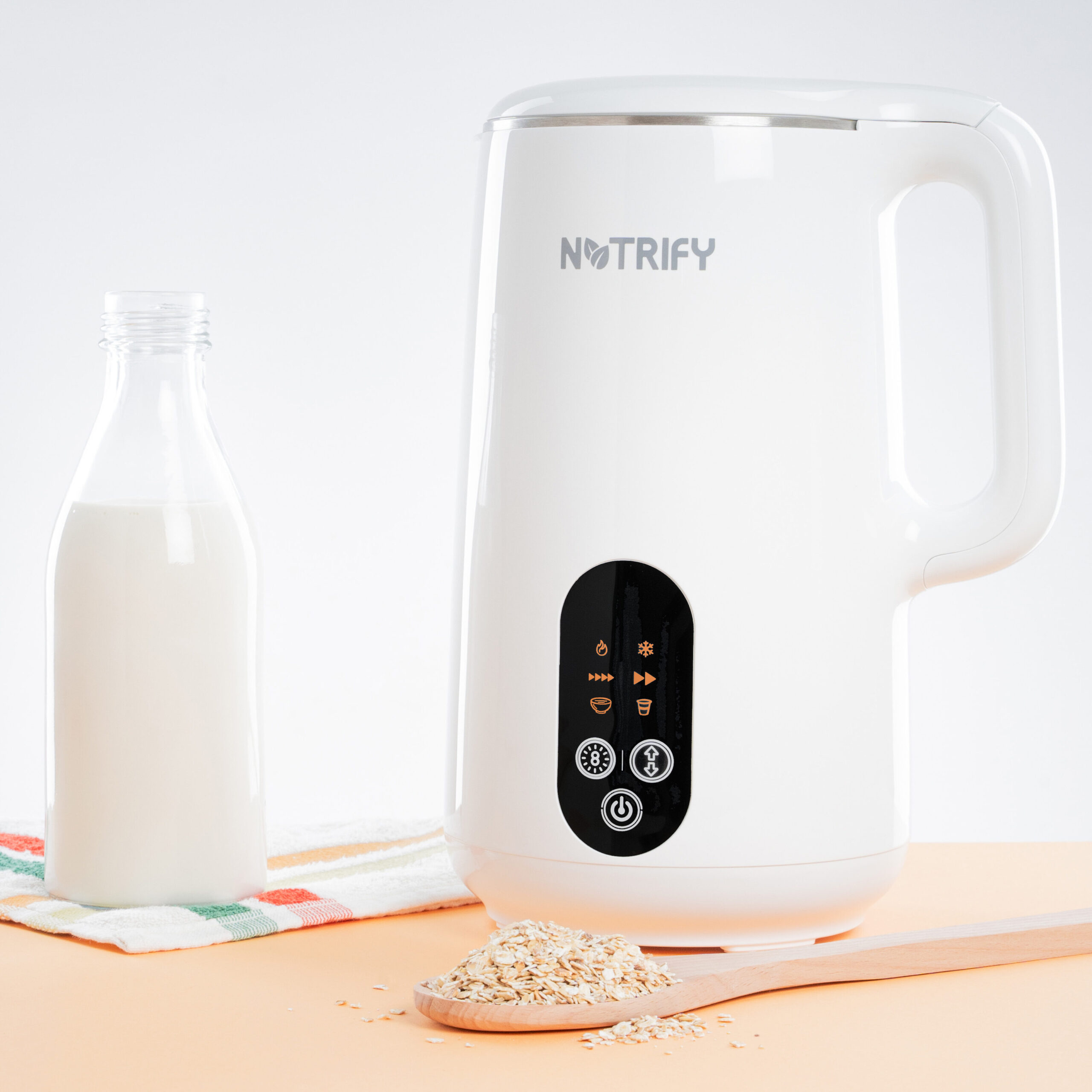
Soy milk is widely known as a nutritious, plant-based alternative to dairy. Nutrify, a machine that produces complete soy milk at home using whole soybeans, offers an approach that retains more of the soybean’s natural components. In Japan, Nutrify is sold under the name Soy Rich, and in 2024, it was the subject of a clinical health study.
Study Design
The “Soy Rich Challenge” was carried out at the Mejiro Internal Medicine Clinic in Tokyo over a 28-day period. The study aimed to evaluate the effects of regular consumption of soy milk on three key health indicators: systolic blood pressure, LDL cholesterol, and fasting blood sugar levels.
Participants were recruited from individuals aged 51 to 73 who had expressed concern about at least one of the three targeted health metrics. A total of 13 participants (2 men and 11 women) were selected following preliminary blood tests. Candidates with values in ranges requiring medical treatment were excluded to ensure the trial focused on non-clinical but potentially at-risk individuals.
Participants were asked to drink soy milk made with the Soy Rich machine every day. This machine uses the whole soybean, keeping parts like fiber and isoflavones that are often removed in store-bought soy milk. Each participant consumed two 200 ml servings daily (400 ml total), with no additives or other dietary modifications introduced during the study period.
Measurements were taken immediately before and after the four-week trial, with blood tests and blood pressure readings administered under clinical supervision. Statistical analyses were conducted to evaluate significance within both normal and elevated baseline subgroups for each health marker.
Reference: Measurement Guidelines
| Parameter | Normal Range | Cautionary Range | Abnormal Range |
|---|---|---|---|
| Systolic Blood Pressure | ≤129 mmHg | 130–159 mmHg | ≥160 mmHg |
| LDL (Bad) Cholesterol | ≤119 mg/dL | 120–179 mg/dL | ≥180 mg/dL |
| Blood Sugar Level | ≤99 mg/dL | 100–125 mg/dL | ≥126 mg/dL |
Results
Blood Pressure
The study found an average reduction of 9.5 mmHg in systolic blood pressure, with individual decreases reaching as high as 32 mmHg. Among participants with elevated baseline readings (above 129 mmHg), this reduction was statistically significant (p = 0.0074), while no significant changes were observed in those within the normal range (p = 0.1450).
Notably, 8 of the 13 participants fell into the elevated category at baseline. All 8 experienced a reduction in systolic pressure, and 6 saw double-digit drops. This consistent pattern across the elevated subgroup supports the potential benefit of soy milk consumption for individuals with high blood pressure, without inducing hypotension in others.
LDL (Bad) Cholesterol
The average reduction in LDL cholesterol was 11.8 mg/dL, with some participants showing decreases up to 52 mg/dL. Statistically significant reductions were found both in participants with elevated LDL levels (above 119 mg/dL) and those within the normal range (p = 0.0142).
At the beginning of the trial, 11 participants had LDL levels above the cautionary threshold. Of these, 9 showed improvement, including 3 who saw decreases greater than 20 mg/dL. Importantly, no participant recorded a significant increase, suggesting the intervention was safe across the baseline spectrum.
Fasting Blood Sugar
Fasting blood glucose levels decreased by an average of 3.8 mg/dL, with the highest individual reduction recorded at 24 mg/dL. Participants with elevated fasting glucose levels saw statistically significant improvements (p = 0.0318), while those with normal levels showed no significant change and remained within safe ranges (p = 0.3788).
Six individuals began the trial with glucose levels above 99 mg/dL. All experienced a reduction in their readings by the end of the study. A trend was observed in which higher starting values were associated with greater reductions, reinforcing the relevance of complete soy milk consumption for individuals at risk of impaired glucose regulation.
Summary
The Japanese trial of Soy Rich (Nutrify) demonstrated that consistent, daily consumption of soy milk made from whole soybeans may support improvements in blood pressure, LDL cholesterol, and blood sugar levels over a four-week period. These benefits were most pronounced among participants with elevated starting values, and no adverse effects were observed in individuals with normal baseline health markers.
The findings provide a useful basis for further exploration into the role of unfiltered soy milk in supporting cardiovascular and metabolic health.